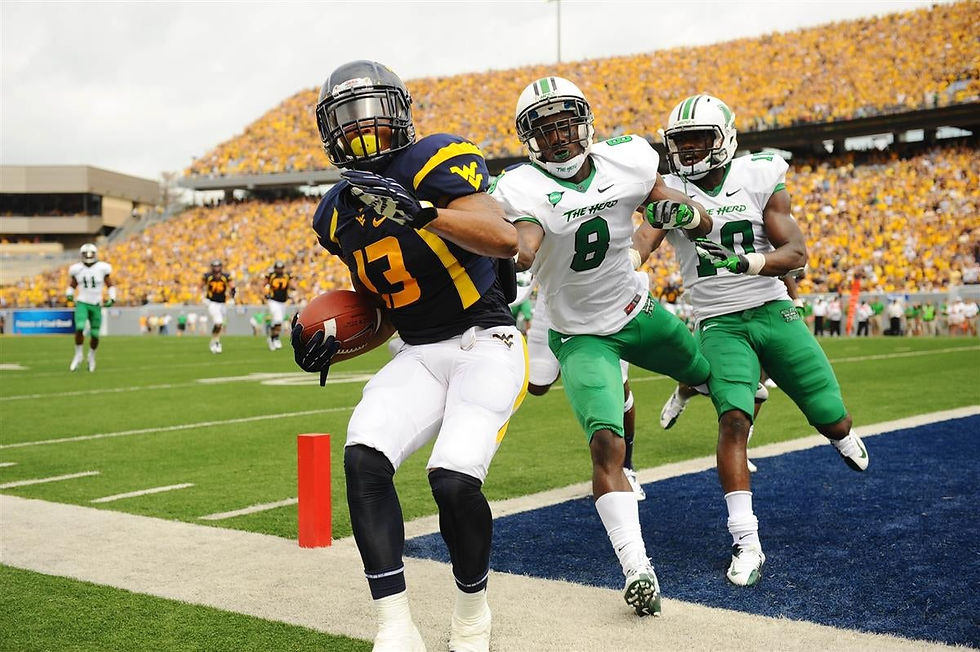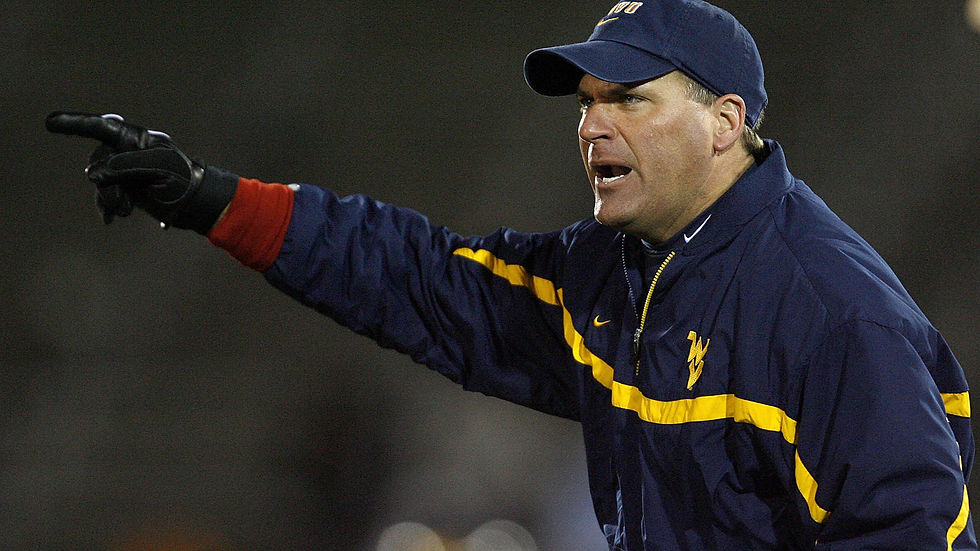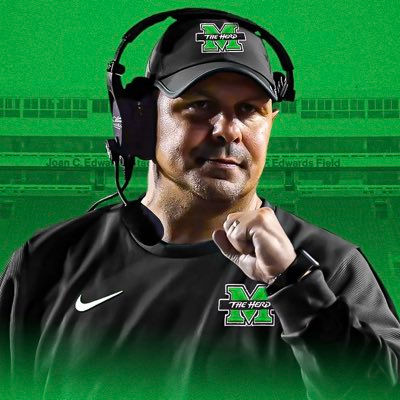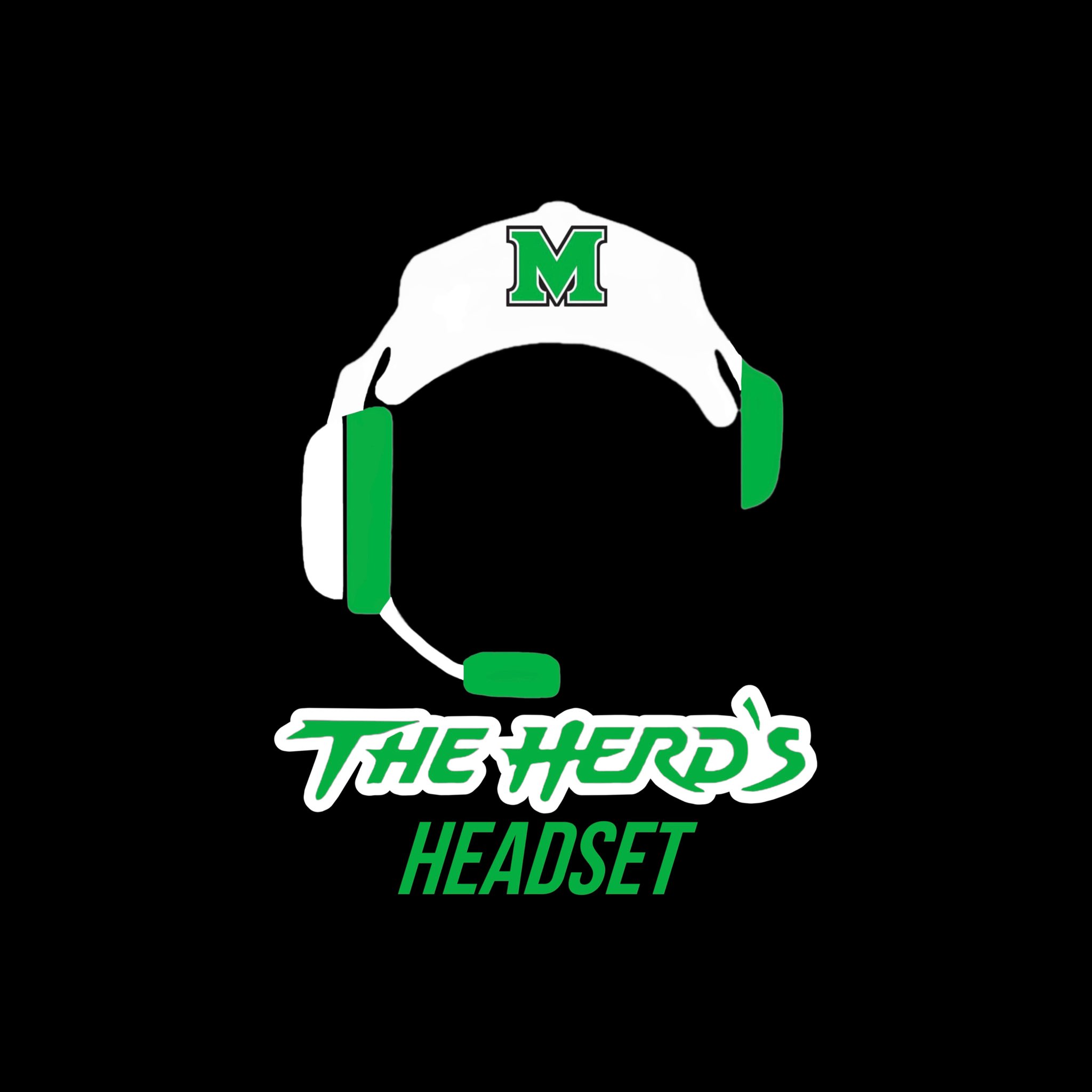It’s Time To Bring Back The Coal Bowl
- The Herd’s Headset
- Dec 12, 2024
- 2 min read

It has been 12 years since Marshall and WVU last faced off in a football game, and that is 12 years too many.
West Virginia is in a unique position geographically. With no professional sports teams in the state, fans have to drive a few hours west to Cincinnati, north to Cleveland, or northeast to Pittsburgh to catch a pro game. As a result, West Virginians rally around two collegiate teams: Marshall in the southwestern part of the state and WVU for the rest. Both programs boast passionate fan bases and have experienced significant football success over the years.
The last Coal Bowl was played in 2012, with WVU securing its 12th consecutive win in the series. (Marshall has yet to win a matchup.) Despite the lopsided results, this game remains one of the most electric early-season rivalries in the country.
Why the Coal Bowl Matters

The atmosphere of a Coal Bowl is unmatched. Morgantown—love it or hate it—is a fantastic college football venue, renowned for its raucous crowd. Huntington, known for its more courteous game-day environment, transforms into a frenzy when WVU comes to town. Some of the rowdiest crowds in Marshall’s history have been for these matchups.
Beyond the fanfare, this game is a massive win for the state of West Virginia. Both WVU and Marshall benefit from national television exposure, showcasing the best of the Mountain State. The local economies in both Morgantown and Huntington also experience a surge, with sold-out hotels, buzzing restaurants, and increased business for local attractions.

And then there’s the game itself. While not every Coal Bowl has been a nail-biter, there have been enough instant classics to make this rivalry unforgettable. It’s about more than football—it’s about state pride, community, and a shared sense of purpose.
The Barriers

The game’s absence for over a decade is due to disagreements on both sides. WVU’s administration and fan base have historically questioned the value of playing Marshall, while Marshall has demanded home-and-home scheduling like other major rivalries. However, as a Group of Five program, Marshall’s request for equal scheduling isn’t realistic in today’s college football landscape.
A Glimmer of Hope

Fortunately, recent changes could pave the way for the Coal Bowl’s return. Marshall recently hired former WVU defensive coordinator Tony Gibson as head coach, while WVU brought back legendary and polarizing figure Rich Rodriguez to lead their program. Both men are West Virginia natives and understand the significance of this rivalry to the state.

Additionally, both schools’ athletic directors have hinted that discussions are happening, with the door at least “cracked open” for the game’s return.
The Future of the Coal Bowl

Twelve years without the Coal Bowl is far too long. This game should become a regular fixture in both teams’ schedules. With the new leadership at both schools and a growing sense of optimism, I truly believe we’ll see this beloved rivalry revived sooner rather than later.
Here’s to hoping the Coal Bowl makes its triumphant return.
Go Herd.
Headset out.






Comments